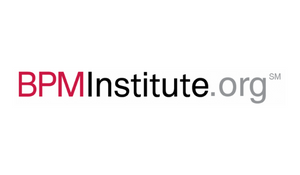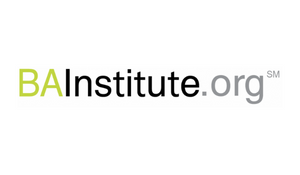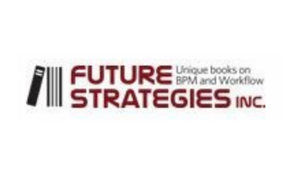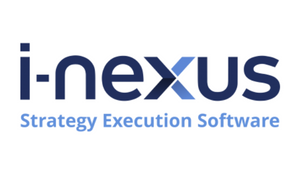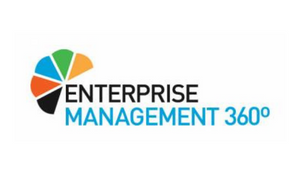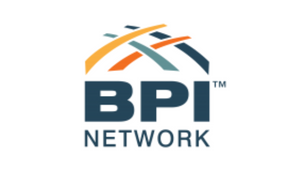

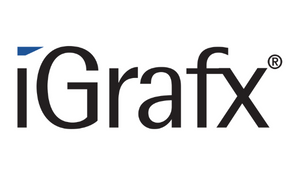


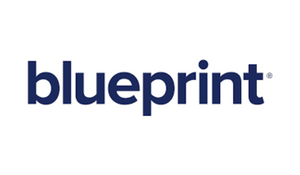
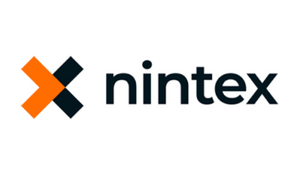
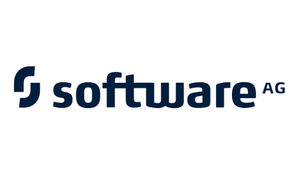
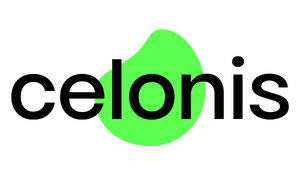
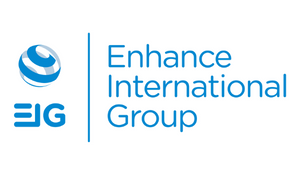
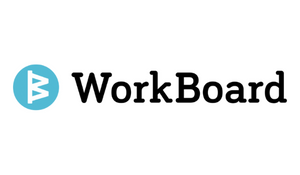
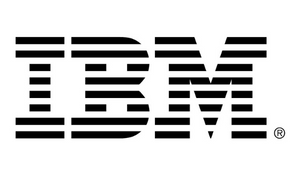
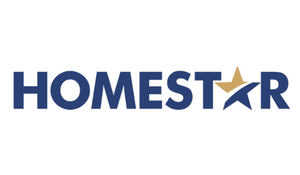
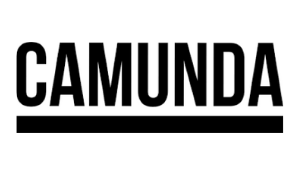
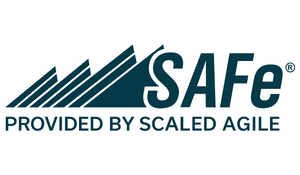
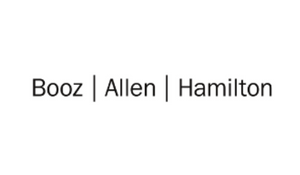
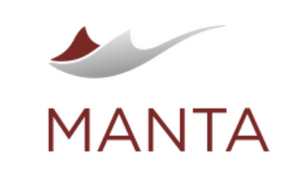
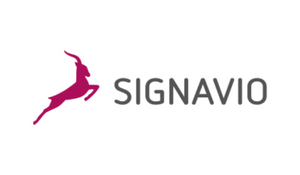


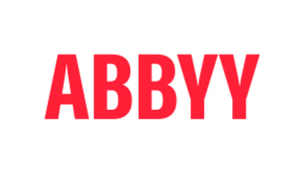

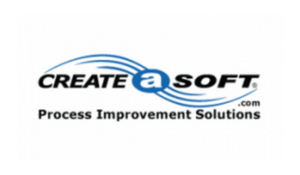



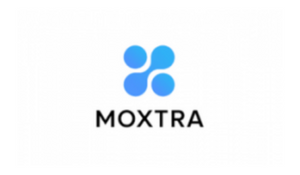
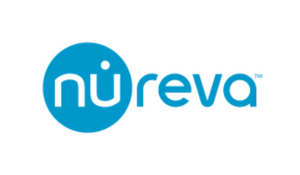
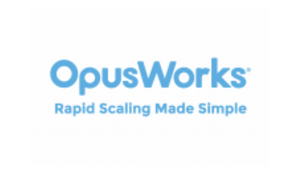
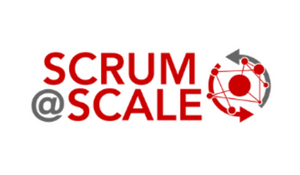
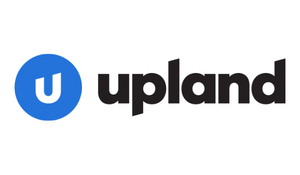
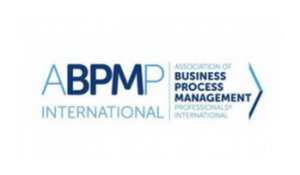
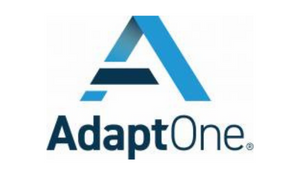
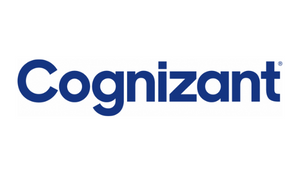
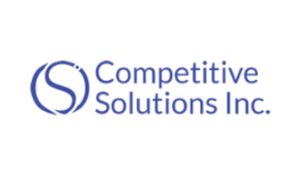
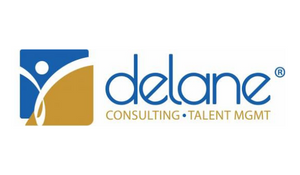

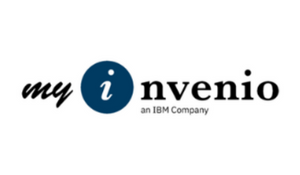

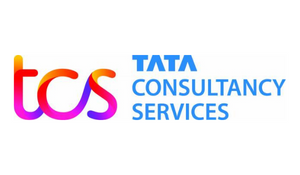
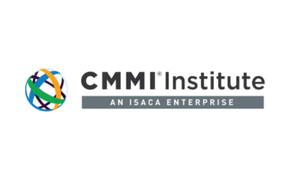
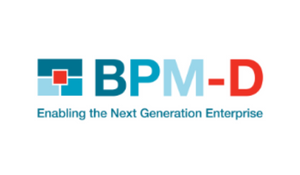

Courtesy of Sara Potecha. LLC's Sara Potecha, below is a transcript of his speaking session on 'Resilience and Micro-Habits' to Build a Thriving Enterprise that took place at BTOES From Home.
.png?width=350&name=Logo-sample-02_optimized-e1582053646534%20(1).png)

Session Information:
Resilience and Micro-Habits
We live in ever changing and highly demanding work environments. Adding to this is the unprecedented change brought about by the COVID-19 pandemic and the myriad of roles many of us hold. The pace of life can be unrelenting. To cope, many of us adopt a work-until-you-drop mentality. Burn-out threatens our health, our performance and our relationships. We don’t want to merely survive; what we need are the tools to thrive.
Drawing from experts in the fields of neuroscience, psychology, physiology and
philosophy, in this session you will learn:
1. Reset your brain on the most critical tasks
2. Reduce the impact of emotions and stress
3. Rewrite your internal thoughts
4. Replenish your physical stamina
5. Recommit to your deeper purpose
Tips on how to make new habits stick
Session Transcript:
Hello I'm Sara Potecha and I'm going to be speaking on resilience and micro habits. I'm delighted to be here and get to share with this international audience and i think this subject is so important because of the world that we currently live in we're living in a time of unprecedented change brought on by the covid19 pandemic and to begin this discussion i want to see about my audience here that are able to attend and I've listed several 2020 stressors and i'd be curious to know what are some of the stressors that you're currently actually experiencing if you're like most of us you may have had to change where and how you work.
You've had to adapt to do technologies maybe you're now working as a geographically member of a geographically dispersed team maybe you're trying to lead one of those which is much more complex perhaps with stay-at-home orders you are homeschooling your children which means that you have these dual responsibilities that pull at you all the time and you might have greater disruptions you may be have lost a job or have job uncertainty or someone in your family does someone you may have had your own health concerns or someone you know.
I personally know several people that have had covet 19 and the impact that it's had on their families you may have uh unfortunately the death of a loved one during this time and i think for some of us we've also dealt with a lot of isolation which can have an impact on us or even too much togetherness if we're continually around our family so all these types of things can have a great impact on our performance because they create stress perhaps you've seen this graph before it basically looks at stress and performance and what we know is when we have low stress.
We also don't perform all that well but as stress increases we actually become alert and actually become better performers up to a point where we're at optimal performance and this can be a really exciting time because that's where we really enjoy our work the time just flies by because endorphins are in our head the stress is just the right amount to have our performance peak however in the reality of today's world we are having stress upon stress added to our daily lives and this can have really difficult and pronounced changes in how we respond to the world around us in fact our thinking typically changes with more and more stress.
So that we become more anxious and all we can think about is sometimes is the anxiety if it gets too bad we become what psychologists call neurobiologically frazzled and this is a scary place to be because we're very likely to have something called an emotional hijack well when we talk about emotional hijack we have to talk about the amygdala that tiny part of our brain that controls our responses to what we see as a perceived threat are we going to fight or flee and it's very interesting because the amygdala as i show in this picture is only the size of an almond yet it controls us like tremendously and so an emotional hijack is when that amygdala responds out of proportion to the threat at hand so it's not responding appropriately.
-1.png?width=397&name=Screenshot%20(45)-1.png) What happens in an instant is hormones fill our system have you ever been so mad you couldn't see well there's some truth to that because when those hormones come into our body our vision narrows our hearing heightens and our muscles increase because we're getting ready to fight or flee but what really also happens is our thinking is compromised and our ability to innovate collaborate and problem solve shuts down we're no longer in our prefrontal cortex where rational thought is we're controlled by the amygdala and this gets me to talking about something called healthy thoughts and toxic thoughts uh Dr. Carolyn leaf is a neuroscientist.
What happens in an instant is hormones fill our system have you ever been so mad you couldn't see well there's some truth to that because when those hormones come into our body our vision narrows our hearing heightens and our muscles increase because we're getting ready to fight or flee but what really also happens is our thinking is compromised and our ability to innovate collaborate and problem solve shuts down we're no longer in our prefrontal cortex where rational thought is we're controlled by the amygdala and this gets me to talking about something called healthy thoughts and toxic thoughts uh Dr. Carolyn leaf is a neuroscientist.
Who studied the brain and body connection for something like 40 years one of the things they've discovered is as we think about something we have a feeling and then a thinking it tends to get hardwired into our thought process and when it's a healthy thought when you look at the neuro synapses and what they look like they do look like trees but healthy trees conversely a toxic thought also has little branches and roots and such but it looks unhealthy and that's exactly what is happening in our bodies.
You see she made the distinction between the mind and the brain the mind is what we control the brain is where all the processes going is going on and the brain has a connection to the body and what she's discovered in her research is that 75 to 98 of all illnesses are a direct result of our thought life take that in for a minute fear triggers 1400 known physical and chemical responses in our body and activates more than 30 different hormones unchecked thoughts create the ideal conditions for illness so we must have the tools to undo the damage.
That's caused by toxic thinking and yet we're seeing the results of the of this toxic thinking all around us in fact a recent research report reported that 45 of all adults reported mental health has been negatively impacted due to the Covid-19 pandemic and all the shutdowns and so on and so forth also 83 percent of the women and 30 percent 36 percent of men have experienced in an increase in depression and 53 more than half of the women and almost 30 percent of the men have experienced increased anxiety so toxicity is around there and it has impacts on our psychological and physical well-being we need to be aware of what can trigger us now we know that there are several triggers but we need to be particularly aware of these now not only if these things happen to us but we are actually doing that to others so we have to be very very careful we can't be condescending we have to show respect.
If we are treated unfairly that could trigger us what if we show a lack of appreciation are people feeling that they're just not heard Dr Stephen covey says we when we actively listen we listen to not only the content but the feeling behind it and then we let the other person know that we have heard and understand their feeling when we do that we give them psychological air so important so when we're not feeling heard it can trigger a reaction in us what about unrealistic deadlines and demands so on the one hand we have to have tools.
So that we can manage our own emotional response to these kind of triggers but we also have to be aware that we are not causing them in others that's why I'm going to talk for the rest of my time with you about these coping skills and I've been a coach for over 25 years and really coping skills are just strategies and techniques to deal with stress but what I found is they're easily developed but they're most underused skills that are right at your fingertips because what we're talking about is habits and what I'd like to share about habits is an analogy that James clear in his phenomenal book.
Atomic habits talks about now imagine for a moment that you are a pilot and you're going to fly from the lax airport to New York city you start the plane but you are 3.5 degrees off in your calculations and let's say as you fly across America you never correct that do you think that you're going to land in or near New York city no you'll actually land in Washington dc being a little bit off at the beginning has huge impact at the end and he said the same thing is what our daily habits are like they are the compound interests of self-improvement if we have good habits that we use repeatedly repeatedly they compound in their impact on us and that's what I'm going to be talking about with you today.
As an example another whole study wanted to understand why the top tennis players in the world and there's only like 10 male and female that seemed to stay at the very top of the game for years on end and then there's like 200 or so that never quite get there and they wanted to know what was the big difference between the top the very top of the game and those are in the top tier but never get to the top so they studied them.
They studied everything from their nutrition to their musculature to their uh resting periods and all the things that you know nutrition and you know what they didn't discover very many differences between the most elite and those just under that tier so they looked a little closer at the very top tennis players and they discovered the difference was what they did between shots these little tiny habits that they did that's what they understood made the difference for them to have superior performance.
That was continually done they had the resilience to stay in there tiny little micro habits not macro such as their eating habits but my tiny little habits that became part of their daily and daily routine every time they took a shot it was little things that they did between the shots that made all the difference and that's what i'm going to present to you as what you can do for yourself to get and build resilience during unprecedented amount of change brought on by covet 19.
So do not discount these what we also know in human development is it's much more difficult to take on a big change in habit than it is tiny little adjustments you're more likely to have success with tiny little adjustments for example it's a whole lot easier to commit to running five minutes a day than training for a marathon so one of these habits is going to be deep breathing now I want to take you through a couple exercises with this but I think the first thing you need to know is that most of us breathe pretty shallowly all day long.
We hardly fill our lungs at all and that has a a compounding effect of keeping a lot of toxins in our body especially when we're under stress so what we want you to do is when you breathe in you're going to put one hand on your stomach because you want to so fill your lungs that your stomach will your lower diaphragm actually is being filled and so your stomach will come out a little bit and when you breathe in through your nose you're going to hold it for a couple seconds and then bring it breathe out through your mouth and it takes longer to breathe out from your mouth.
So i want you to be in a relaxed situation you can close your eyes I want you to just focus on the breath and we're only going to do this five times so let us begin breathe in slowly let it out again breathe in and hold it what's more he did last time breathe in now I bet you're feeling even calmer i know notice that I'm slower in my speaking as a result but so many wonderful things are going on in your body right now first you're getting rid of a lot of the cortisol.
If you had stress up to this moment you've gotten rid of that and you've replaced it with endorphins now of course ideally you would do this for a longer period of time than I was able to show you but maybe do it start by doing it for 10 deep breaths and gradually build up so you do it to for one or two minutes and what you'll also find is that your body will become detoxified and you'll improve your immunity because when you're under stress.
You're more likely to catch a cold or get sick but this is a good way to cleanse that because you're getting yourself into a calm state and we know from research this lowers blood pressure will actually improve your digestion and help support a proper posture so there's many reasons to begin to do that research has shown that people that worked in toxic work environments started employing deep breathing for a couple minutes several times a day and within two weeks they enjoyed their jobs much more.
I've also seen with those that have done this you can employ deep breathing even when you're on the phone with something someone who's getting your ire up to calm you or even a conference call you can be breathing a couple times so that you remain calm and when you remain calm others will have a difficult time getting upset because you're modeling calmness they'll tend to actually mirror you so remaining calm is a great way to have influence over those that you you need to are those you need to calm down another tiny habit so impactful.
So compounding in its effect is drinking enough water it's really this hydration and it's because our bodies are 70 water but our brains are 85 water so when we do not get enough water we could experience headaches we will feel more tired and if we really let ourselves go we can have seizures but not having enough water throughout the day you will find that your energy level will be lower you'll feel more tired and more prone to stress.
So how much water should you drink well most people most researchers recommend at least 64 ounces of water a day if you exercise or you're in a hot climate obviously you need to drink more than that so that's a basic minimum and to make it a tiny habit i suggest drinking every 15 minutes in fact it's time for me to do that if you drink every 15 minutes you'll have no problem getting 64 ounces of water in your day you can get a you could also get a bottle like the one i show on the screen here that kind of encourages you throughout the day to keep drinking keep drinking but here's the deal you cannot substitute coffee or tea or soda or something or fruit juice for drinking water.
It's got to be water that's going to go right into your system and research says it will prevent and treat stress depression fatigue and helps support a healthy weight or weight loss if you if you need to lose weight so again a tiny little habit that you can incorporate another tiny habit that you will take a little more time to use is incredibly important because as you are dealing with life and as we've already discussed the the amount of stressors that could be compounding you often you will find yourself overwhelmed for me when that happens I get a sense in my stomach I just know that I'm anxious and so Dr Leaf came up with this mental autopsy methodology I'll give you an example just this week I've been working on several different projects and one was not coming together the way I'd like it.
So I was feeling anxious about it and i recognized it because i was working on someone something else and I kept thinking about it so taking step one i recognized it i named it i had anxiety because i don't feel comfortable about project b let's call it so i embrace the issue and at the time i didn't have a moment to really think deeply about it so i scheduled time on my calendar when i could take like a half hour 20 minutes to really think about it and so i did later that day think really deeply by asking a series of why is that why is that so why am i feeling anxious well I'm depending on other people for the little bits and pieces of this project to get done and why is that upsetting me because i'm not getting that information and why does that upset you, well let's go back did I realized that I had not asked for a constant update I had not asked for the very things that were causing me angst and then in step three.
She has you write out those very thoughts and this is incredibly powerful it's about putting your thoughts on paper that you suddenly see oh that's what's going on here that's where I discovered her step four the patterns the patterns were I had agreed to a project without setting proper guidelines or our ways of working with this group of folks and I hadn't clearly communicated what i needed to do my part of the project and because I could see it laid out there right in front of me i easily saw a plan of action i needed to communicate with them and tell them what I needed and once I began to act on that plan that stress went away that anxiety went away.
So a simple little five-step process that you could employ when you feel a bit overwhelmed when anxiety starts taking over you don't let it fester you take action so the toxic thought doesn't have control over you you have control over your thinking the last and very important uh micro habit i want to discuss is this idea of sleep to begin talking about it.
I want to quote from Dr. Matthew walker's incredible book about sleep and uh he spent 20 years really studying it and he's concluded that the single most effective activity we can do to reset our brain and body health is a good night's sleep now how can we get a good night's sleep if we're full of anxious thoughts and again that's why some of these habits build on each other it's called habit stacking but let me just tell you the importance of of sleep you see all day long all day long in fact 24 7 our brain never stops working but while we're awake and we're working it's doing mental gyrations it's doing calculations.
It's learning new things it's absorbing new things it's keeping track of a variety of different things there's a lot of work going on and it creates toxins in your brain and when we go to sleep we don't just immediately go to sleep we start in a stage one where it's light see sleep and it's we're easily awakened in stage two eye movement and brave waves slow down and then stage three the delta waves begin to appear stage four no eye movement muscle activity and we're it's very difficult to wake us up at this point.
We're in something called non-rem sleep and finally we get into rem sleep where breathing becomes more rapid irregular and shallow and the truth is that we bounce between non-ram ram and lighter stages of sleep all night long but why are these stages important well the non-rem is where we do all the reflection that we've incorporated all this learning throughout the day and then we go and kind of mentally sort through it about stuff.
We're going to throw out that information is no longer any good and we re categorize where the new information is going to be stored then we get rid of some of those toxins but in ram this is where we integrate and dream and innovate and problem solve but here's the deal it takes time to get into stage four and rem stage it takes it could take it could take an hour could take less than that it could take 90 minutes could take two hours.
So if you don't give yourself what Dr. walker says sleep opportunity you're probably sure changing how much time you have in each of these stages he recommends at least 7 to 8.5 hours of sleep opportunity so that means you can't work until the very last minute and then expect to go to sleep at midnight and get up at six because you're not giving yourself what you need for restorative sleep that does all the things you're supposed to do to restore your brain and your body so what are some tiny habits.
So that you can do this well I've kind of called this sleep hygiene we know that regular exercise will help you sleep better now it's kind of a macro thing but even a little exercise a day 20 minutes will probably help you sleep better but most importantly you have to prepare yourself for sleep do quiet activities before bed the use of aromatherapy and soft sounds will have a calming effect on your body to employ the deep breathing.
That we just learned about and muscle relaxation techniques will help you fall asleep better now there's things you can avoid you don't want to medicate with alcohol or sleeping aids now if you're prescribed a sleeping aid that's different um not a doctor but we do know that when you medicate or have alcohol too close to bedtime you're probably going to wake up sometime in the night you're not going to get into the non-ram and rem sleep.
Where so many important functions are done also if you consume rich foods too close to bedtime it's going to interrupt that deep sleep so have dinner at six or seven go to sleep 11 or so you've had time to digest the foods and what and stop with the tv in the bedroom are looking at your laptop or your or your phone get the blue screen out of your bedroom so that you can it'll actually interfere with getting into deep sleep so tiny little habits that will improve your sleeping patterns so that you can be successful and and be able to be more resilient the next day.
So I conclude by saying that 2020 certainly has brought challenge difficulty and disruption to many of our lives and with that comes stress and stress can have a negative impact because it can create those toxic thoughts that have impacts on our our mental and physical health but remember that micro habits that I've suggested have the compound interests of self-improvement.
They will compound to give you the resilience you need for each and every endeavor so I suggest incorporating one tiny habit for a few months and then adding another until you've done. All four of these and there's more to come of these micro habits but I think these are for the most powerful but simple tiny habits that can lead to greater resilience.
I want to thank you for your time and as my gift to you just go to my website type in www.sarapatica.com forward slash BTOES and you can download two chapters of my book west point woman which is the story of what being one of the first women to graduate from the united states military academy it's a story of overcoming adversity through and learning leadership lessons as a as part of that story so if you'll just go there you'll be able to download two chapters of that and please follow me um you can i do something every a day called a leadership gem that you can check out on my LinkedIn and my Facebook page but here's my contact information and I truly have enjoyed this time with you thank you again and may you have health and may you have resilience.

 Sara Potecha,
Sara Potecha,
President,
Sara Potecha. LLC.
Sara Potecha (Poe-Teach-Ah) is an accomplished author, speaker, executive coach and consultant. A masterful storyteller, Sara is a sought-after speaker on such topics as leading through crisis, navigating adversity, emotional intelligence, resilience and micro-habits and many other topics. Her diverse audiences have ranged from corporate headquarters to prisons and in size from 30 to over 100,000! Sara has coached hundreds of leaders to higher performance and led cultural transformation initiatives for Fortune 100 and 200 companies. She holds a bachelor’s degree in General Engineering from the United States Military Academy at West Point and a master’s degree in Organizational Management and Development from Fielding Graduate University. She is a professional speaker with the National Speakers Association (NSA) and a John Maxwell Certified Speaker and Coach. In her best-selling book, West Point Woman, Sara delves into fundamental leadership precepts taught to her at a tender age at the United States Military Academy and applied in all her varied roles. She captures her audiences through powerful, and often hilarious, personal stories while teaching her readers how to cultivate the character within.

View our schedule of industry leading free to attend virtual conferences. Each a premier gathering of industry thought leaders and experts sharing key solutions to current challenges.
View Schedule of EventsWelcome to BTOES Insights, the content portal for Business Transformation & Operational Excellence opinions, reports & news.
-------------------------------------------------------
Search for anything
Insights from the most progressive thought leaders delivered to your inbox.
Insights from the world's foremost thought leaders delivered to your inbox.
Being a hero is all about creating value for others. Please invite up to 5 people in your network to attend this premier virtual conference, and they will receive an invitation to attend.
If it’s easier for you, please enter your email address below, and click the button, and we will send you the invitation email that you can forward to relevant people in your network.
View our schedule of industry leading free to attend virtual conferences. Each a premier gathering of industry thought leaders and experts sharing key solutions to current challenges.
View Schedule of EventsWatch On-Demand Recording - Access all sessions from progressive thought leaders free of charge from our industry leading virtual conferences.
Watch On-Demand Recordings For FreeDelivered by the industry's most progressive thought leaders from the world's top brands. Start learning today!
View All Courses NowThe premier Business Transformation & Operational Excellence Conference. Watch sessions on-demand for free. Use code: BFH1120
Watch On-DemandInsights from the most progressive thought leaders delivered to your inbox.
Insights from the world's foremost thought leaders delivered to your inbox.
Being a hero is all about creating value for others. Please invite up to 5 people in your network to also access our newsletter. They will receive an invitation and an option to subscribe.
If it’s easier for you, please enter your email address below, and click the button, and we will send you the invitation email that you can forward to relevant people in your network.
Courtesy of Nintex Pty's Paul Hsu, below is a transcript of his speaking session on 'Improve employee productivity during and post-COVID by ...
Read this article about HP, Best Achievement in Operational Excellence to deliver Digital Transformation, selected by the independent judging panel, ...
Read this article about BMO Financial Group, one of our finalists, in the category Best Achievement in Operational Excellence to deliver Digital ...
Read this article about Cisco, one of our finalists, in the category Best Achievement of Operational Excellence in Internet, Education, Media & ...


